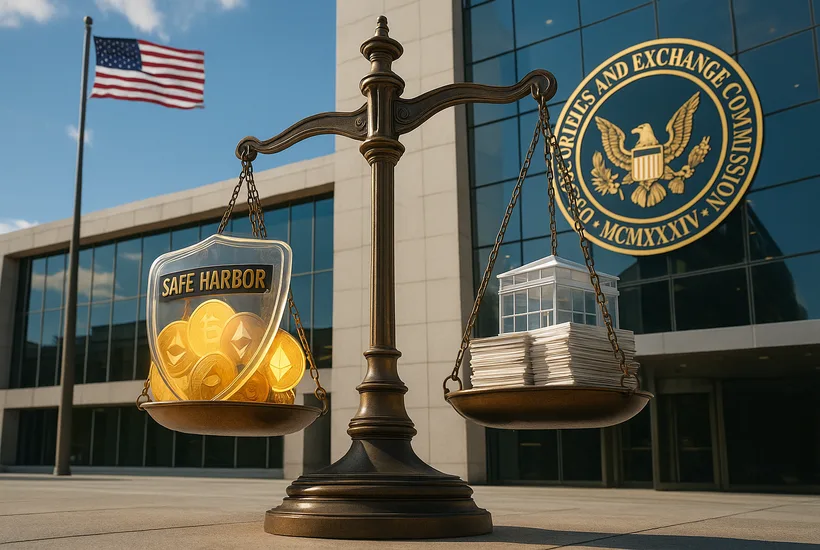US Securities and Exchange Commission (SEC) Chair Paul Atkins has announced a regulatory agenda containing proposed rules that could significantly impact how the agency handles digital assets. The agenda, which was released on Thursday as part of the spring 2025 plan, includes about 20 proposed rules, many of which could soften the SEC’s enforcement approach towards the crypto industry.
These proposed changes aim to provide greater regulatory clarity and certainty for the crypto market, marking a shift from the previous administration’s stricter stance. The new rules are expected to offer safe harbors and adjust existing regulations to benefit crypto projects, potentially reducing the regulatory burden on the sector.
The agenda reflects our withdrawal of a host of items from the last Administration that do not align with the goal that regulation should be smart, effective, and appropriately tailored within the confines of our statutory authority.
Key proposals in the SEC’s agenda
Among the proposed rules, some key changes could have significant implications for crypto companies operating in the US:
- Exemptions and safe harbors for crypto assets: The SEC proposes certain exemptions that could ease regulatory oversight for crypto companies, particularly around the offer and sale of digital assets.
- Broker-dealer financial responsibility rules: The SEC is considering modifications that would ease the reporting burden on crypto companies, which have often faced challenges with Know Your Customer (KYC) and Anti-Money Laundering (AML) requirements.
- Changes to the Exchange Act: The SEC is exploring amendments to the Exchange Act, which could better account for crypto asset trading on alternative trading systems (ATS) and national securities exchanges.
- Modernizing the Investment Advisers Act of 1940: This proposed rule would make adjustments to how the custody of crypto assets is regulated, improving the framework for digital asset management.
These changes are designed to create a more flexible and accommodating regulatory environment for crypto companies, which have long struggled with regulatory uncertainty.
Impact on crypto firms and industry expectations
The proposed rule changes could significantly reduce the regulatory burden on crypto companies in the US, potentially allowing them to operate with less oversight. For instance, relaxing broker-dealer rules could make it easier for crypto platforms to comply with KYC and AML obligations, which have historically been challenging for many projects due to the decentralized nature of blockchain networks.
Atkins’ proposals also reflect a broader shift towards clarifying the regulatory framework for digital assets. With the US government increasingly open to the idea of integrating cryptocurrencies into the mainstream financial system, these rule changes could help provide a clear path forward for crypto businesses seeking to comply with US regulations.
The process ahead for SEC rule changes
While these proposed changes are part of the SEC’s 2025 agenda, they must go through an extensive process before becoming law. This includes a public comment period and further review by the commission. As the new SEC Chair, Paul Atkins holds significant influence in shaping the direction of crypto regulations, though any major changes will require time and public input.
Since the resignation of former SEC Chair Gary Gensler on January 20, many of the commission’s decisions have represented a shift in direction. The SEC has dropped years-long investigations and lawsuits, indicating a potential shift towards a more supportive regulatory environment for crypto companies.
The proposed rule changes are likely to be a game-changer for crypto companies seeking to expand their operations in the US. The industry has long awaited regulatory clarity, and these proposals suggest a more balanced and thoughtful approach from the SEC, one that could foster innovation while still maintaining necessary safeguards.



